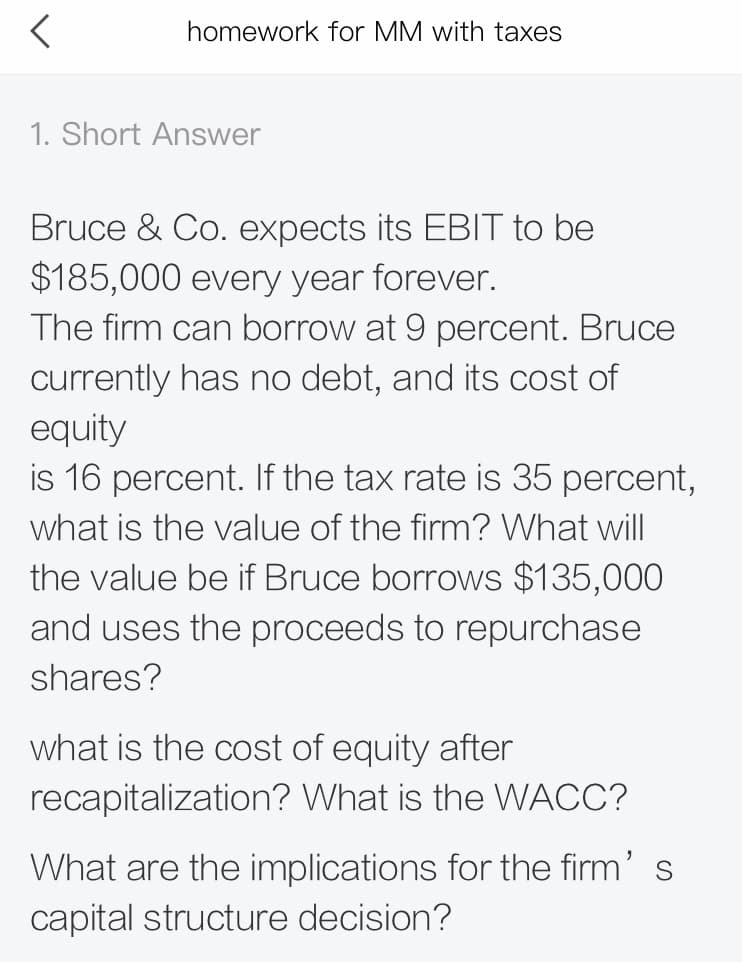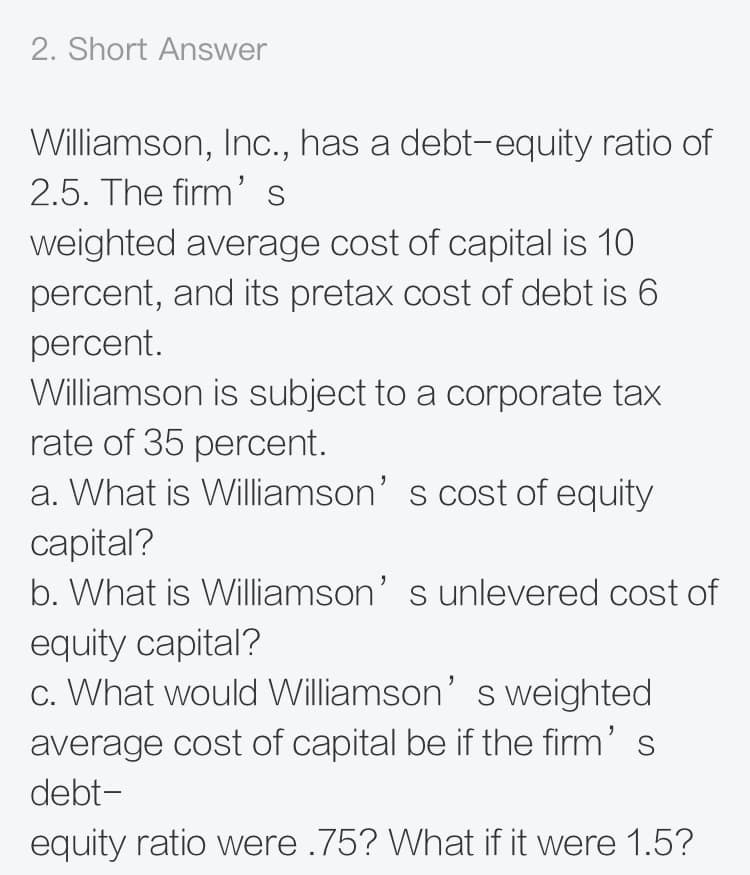Bruce & Co. expects its EBIT to be $185,000 every year forever. The firm can borrow at 9 percent. Bruce currently has no debt, and its cost of equity is 16 percent. If the tax rate is 35 percent what is the value of the firm? What will the value be if Bruce borrows $135,000 and uses the proceeds to repurchase shares? what is the cost of equity after recapitalization? What is the WACC? What are the implications for the firm' s capital structure decision?
Bruce & Co. expects its EBIT to be $185,000 every year forever. The firm can borrow at 9 percent. Bruce currently has no debt, and its cost of equity is 16 percent. If the tax rate is 35 percent what is the value of the firm? What will the value be if Bruce borrows $135,000 and uses the proceeds to repurchase shares? what is the cost of equity after recapitalization? What is the WACC? What are the implications for the firm' s capital structure decision?
Intermediate Financial Management (MindTap Course List)
13th Edition
ISBN:9781337395083
Author:Eugene F. Brigham, Phillip R. Daves
Publisher:Eugene F. Brigham, Phillip R. Daves
Chapter17: Dynamic Capital Structures And Corporate Valuation
Section: Chapter Questions
Problem 8P
Related questions
Question
answer these questions

Transcribed Image Text:homework for MM with taxes
1. Short Answer
Bruce & Co. expects its EBIT to be
$185,000 every year forever.
The firm can borrow at 9 percent. Bruce
currently has no debt, and its cost of
equity
is 16 percent. If the tax rate is 35 percent,
what is the value of the firm? What will
the value be if Bruce borrows $135,000
and uses the proceeds to repurchase
shares?
what is the cost of equity after
recapitalization? What is the WACC?
What are the implications for the firm' s
capital structure decision?

Transcribed Image Text:2. Short Answer
Williamson, Inc., has a debt-equity ratio of
2.5. The firm's
weighted average cost of capital is 10
percent, and its pretax cost of debt is 6
percent.
Williamson is subject to a corporate tax
rate of 35 percent.
a. What is Williamson' s cost of equity
capital?
b. What is Williamson' s unlevered cost of
equity capital?
c. What would Williamson' s weighted
average cost of capital be if the firm' s
debt-
equity ratio were .75? What if it were 1.5?
Expert Solution
This question has been solved!
Explore an expertly crafted, step-by-step solution for a thorough understanding of key concepts.
This is a popular solution!
Trending now
This is a popular solution!
Step by step
Solved in 3 steps with 2 images

Recommended textbooks for you

Intermediate Financial Management (MindTap Course…
Finance
ISBN:
9781337395083
Author:
Eugene F. Brigham, Phillip R. Daves
Publisher:
Cengage Learning

EBK CONTEMPORARY FINANCIAL MANAGEMENT
Finance
ISBN:
9781337514835
Author:
MOYER
Publisher:
CENGAGE LEARNING - CONSIGNMENT


Intermediate Financial Management (MindTap Course…
Finance
ISBN:
9781337395083
Author:
Eugene F. Brigham, Phillip R. Daves
Publisher:
Cengage Learning

EBK CONTEMPORARY FINANCIAL MANAGEMENT
Finance
ISBN:
9781337514835
Author:
MOYER
Publisher:
CENGAGE LEARNING - CONSIGNMENT
